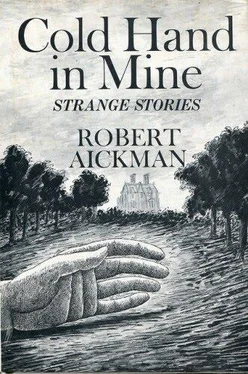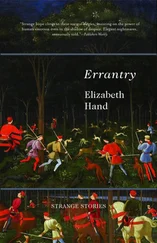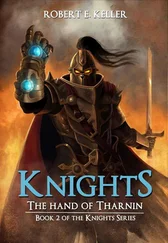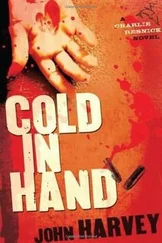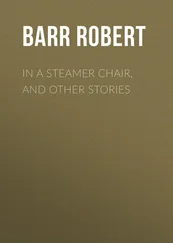I first set eyes on Ursula when she was sitting on a bank by the roadside, somewhere near Mönchen-Gladbach. I cannot say exactly where it was. As a matter of fact, we actually went back some years later to look for the place, and could not find it at all. Not that I wish to suggest there was anything peculiar about that, or anything related to what was already very much happening — elsewhere. It was simply that the whole face of Germany had changed by that time, and thank God for it.
When I originally spotted Ursula, there was no traffic on the roads, first, because all the vehicles had been destroyed or commandeered; second, because in that area there were no roads that remained passable except by military stuff, tanks and jeeps. There were no people about either: local people, I mean. Of course it was nothing like the Somme and the Aisne twenty years earlier, nothing at all. It was perhaps more depressing than horrifying; anyway at a first look. The second world war was just over, and some of those whom I knew — not well, as I say — had the pleasant job of routing out the local concentration camp.
Ursula, mercifully, had nothing to do with that. She came from the Black Forest, hundreds of miles to the south. She was an only child and had lost both her parents when Freudenstadt was removed from the face of the earth. She herself had been working nearby as a domestic servant right through the latter part of the war. This seems strange to us, but Germany never really got round to "total war" and all that, although people here think that she did. Of course, Ursula was not properly a domestic servant. She was simply allowed to masquerade as one by the people who lived in one of the big houses, and who, like many of their kind, didn't care for the Nazis. Ursula's father was a manufacturer of Black Forest souvenirs, and, Ursula told me, no one interfered very much with that either, until the very last months of the war. I describe him as a "manufacturer", because he seems to have been in a quite big way of business, with many employees, and an agreeable income. Certainly, Ursula went to a costlier school than I did, and she also emerged better educated, Nazis or no Nazis. Though I went to a public school, and a quite well-known one, it was not Eton, and the field is one where the descent from the best is steep. More than anything else, Ursula's father manufactured clocks; cuckoo clocks, painted clocks, and huge clocks in dark spiky wood or in polished spiky metal that chimed and struck and kept tabs on the phases of the moon, not to say the zodiac. I can be specific because Ursula brought many such clocks into our home; in memory of her father, or otherwise. It was the downfall and ruin of her beauty and of our love.
And how beautiful she was when my eyes first lighted upon her! Her parents being Catholics, she had been named after St Ursula of Cologne, who went on the long voyage and was ultimately martyred with all her virgins, hundreds of them, I believe; and a saint is precisely what my girl looked like — then and for a long time afterwards. She had a gentle, trusting gaze, despite everything that had happened to her; and a mouth like a soft flower at the most perfect moment of its blooming. She was still wearing the maid's black dress which had been part of her disguise, so to speak; and, again, many people will be surprised to hear that it was made of real silk. Even the fact that this dress was slightly torn and slightly dirty, added to the effect she gave of having something to do with religion. She had no property of any kind, apart from a handkerchief. That was made of silk too, but this time it was a survival from her first communion. It was very small, but it had a wide edging of lace, made — yes — by the Black Forest nuns. Later, she gave me the handkerchief as a treasure to keep. I kissed it and hid it away, but, though it seems incredible, especially to me, I realized in no time that I had managed to lose it. Of course it must be somewhere in the house now, and I never mentioned the loss to Ursula. At the time I first saw Ursula, she was weeping into this tiny handkerchief, and I lent her a much larger one, just as the kind man does in a novel or a show. I was awaiting "repatriation" at the time, and had managed to evade any particular duties now that the destruction was over. No one who missed seeing what we did to Germany can have any idea, and the Germans put it all back in no time; Freudenstadt, as it happens, first of all, or just about.
I took Ursula under my wing at once, right close under it. It was what one did at that time, but, from the very first, I meant more by it than did most of the others, and when difficulty arose about Ursula coming to England, I had no doubt in my heart about assuring the authorities in writing that she was coming to marry me.
I hadn't seen her for more than three months and I went to Harwich to meet her. Little Attlee had come into power by then, and many of my acquaintance had voted for him, especially, as we all know, those who had been fighting under Churchill. England had started on her long soft greyness, but when Ursula emerged from her grilling by the Aliens Department, she was startlingly well turned out and accompanied by an unexpected quantity of brand new luggage. She told me that she had managed to avoid "relief agencies" of all kinds, and had always been in a real job of some sort. Ironically, it was a bit different here. Though we all know how run down England was at that time, Ursula was not permitted to take a job at all until after we were married and she had become a British citizen; so that at first she was reduced to working free of charge for a charity. It sent bundles somewhere or other; and, as in Germany, it was amazing how much had remained in back rooms with which to stuff them.
When Ursula arrived, I was back to living in my mother's and father's old house, and there was nothing to do but take her there. I was with Rosenberg and Newton by then, and young Jacob Rosenberg knew all about it, and was very kind and decent. Certain others were not; and, oddly enough, when I made it clear that I was about to marry Ursula, seemed not in the least reassured, but rather the contrary, as I have said. There was even talk of my having brought over a foreign mouth to feed. No doubt it was called a Nazi mouth when I was not actually listening. Of course it is unconventional for the bridegroom to lead the bride from his own front door.
In my mother's house, Ursula set up the first of her clocks. I had noticed that her shiny baggage at Harwich included a black, oblong box in what looked like leather but was, in fact, a good imitation of leather. The clock inside was a cuckoo, fairly large and in plain dark wood. The bird, which was paler, emitted a sharp, strident shriek, which could be heard at the hour all over the house. At the quarters, including the half, the bird was silent, so at first I reflected that things might be worse. I was working hard both with Rosenberg and Newton (I abominate those who take money without even attempting to give a proper return for it) and also with finishing off the house before putting it up for sale; so that I could sleep like a log even with the cuckoo clock in the same room with me.
But before long the woman next door came in with a complaint about it. She refused to "discuss the matter" with Ursula and insisted upon seeing me. She was quite young, with blonde shoulder-length hair turned outward at the ends, and nice legs. Indeed, she was a nice person altogether, I thought. She said, quite agreeably, that the cuckoo kept her three little boys awake all night. "It doesn't sound like a cuckoo , at all," I remember her saying. I couldn't disagree, but replied that clock cuckoos seldom do; which is, surely, true enough? I said I would speak to Ursula about it, and even, at that early stage, so to say, I thought I detected a gleam of scepticism in the woman's eye, though a scepticism that was not unfriendly to me . "I'll do what I can," I concluded, and the woman smiled very nicely, and attempted no further argument. I was rather shocked to realize that the wretched cuckoo could be heard at all outside the house.
Читать дальше
